For at least six years, our city’s budget documents have portrayed a stagnant local economy. Specifically, they have said multiple times that “[t]he path to economic recovery continues to be slow and incremental,” and that the city is restrained, without raising property taxes further, in its “ability to maintain the City in peak condition and offer new opportunities to our residents.” At points during the past six years, our city’s budget documents have said “a deficit is projected at year’s end principally because of anemic sales revenues,” and emphasized that “[g]rowth in retail sales is key to the economic health of the City.” These budget documents have repeatedly pointed to reasons to be optimistic about sales tax revenue growth in the future, but that growth has yet to be realized. These images from the previous six adopted budgets illustrate the point:
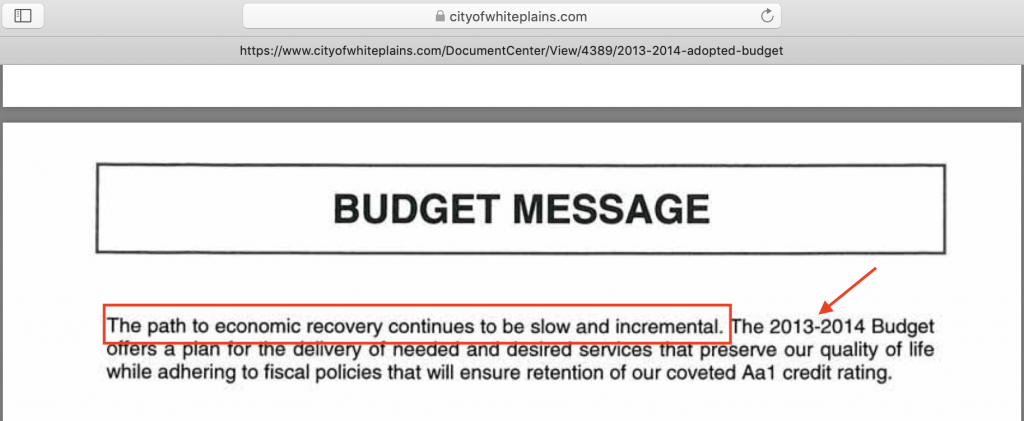
***

***
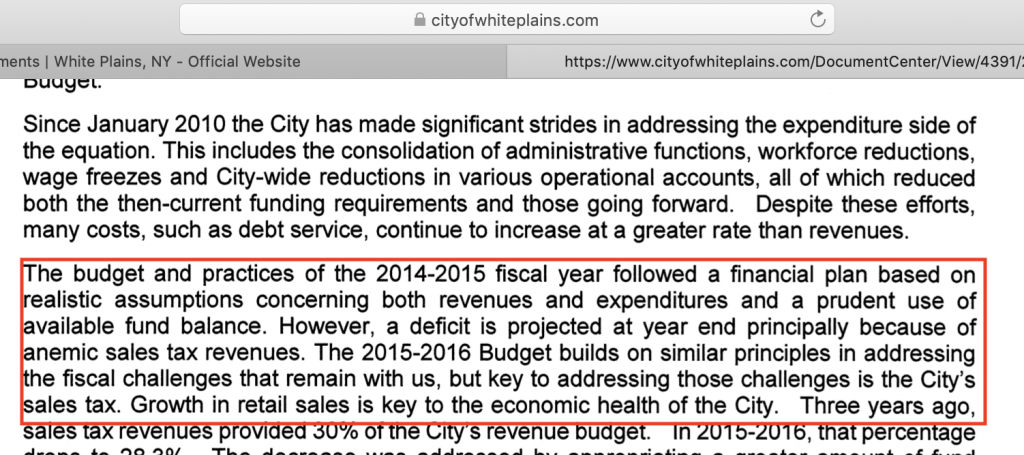
***

***
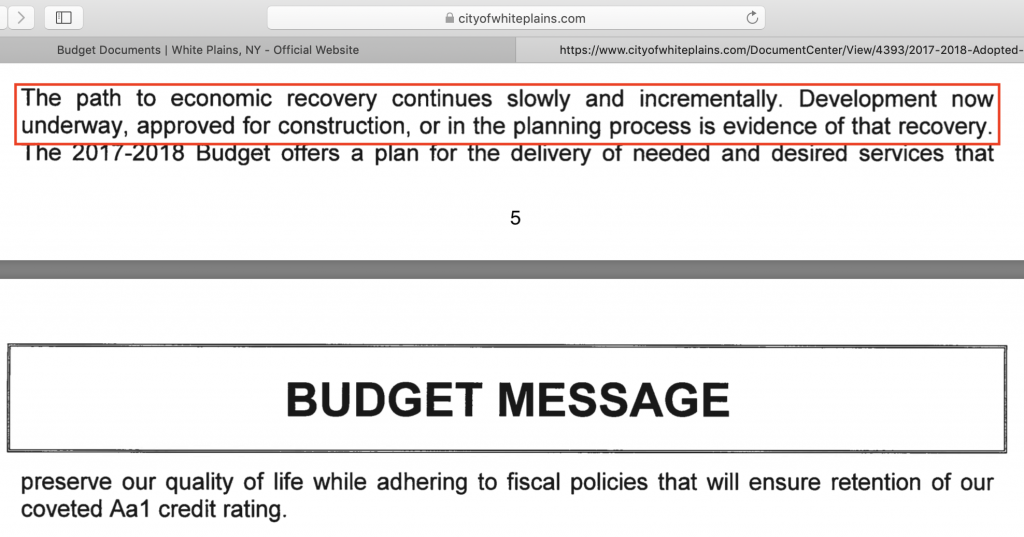
***

Meanwhile, during these years when sales tax revenue in White Plains stagnated, sales tax revenue in Westchester County rose:
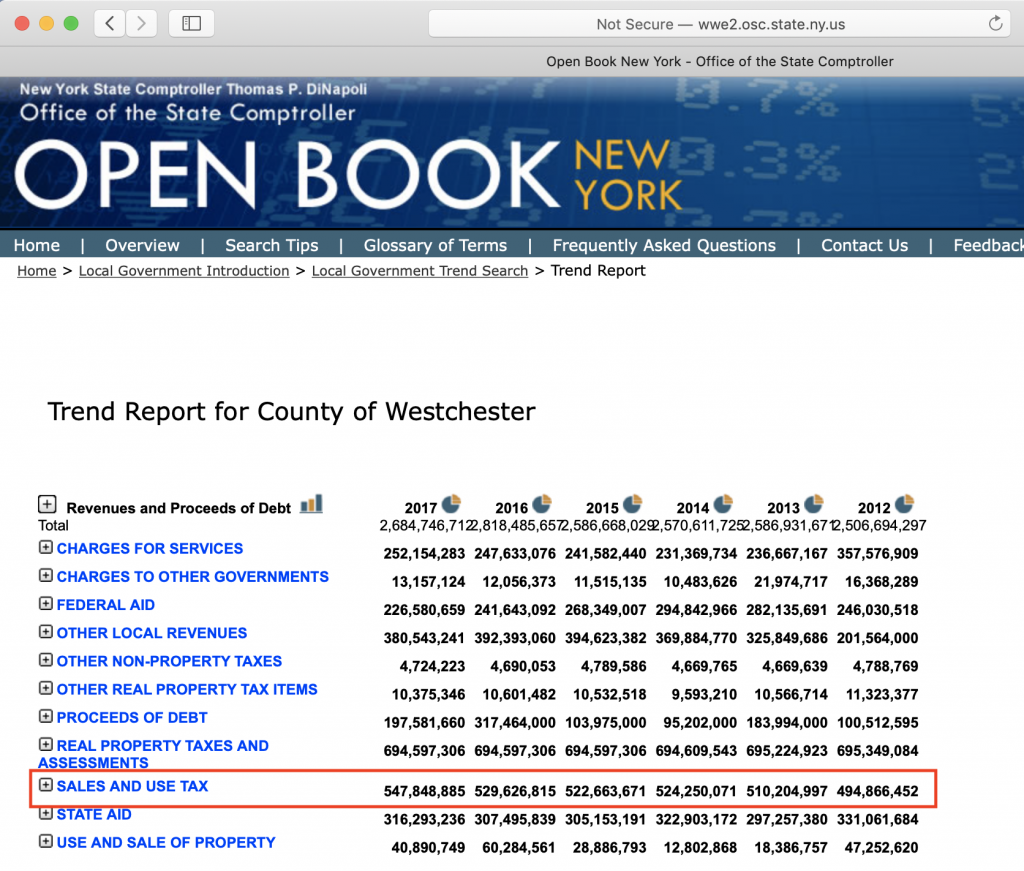
The most recent numbers available to us show that Westchester County sales tax revenue has been regularly growing while WP’s continues to shrink:
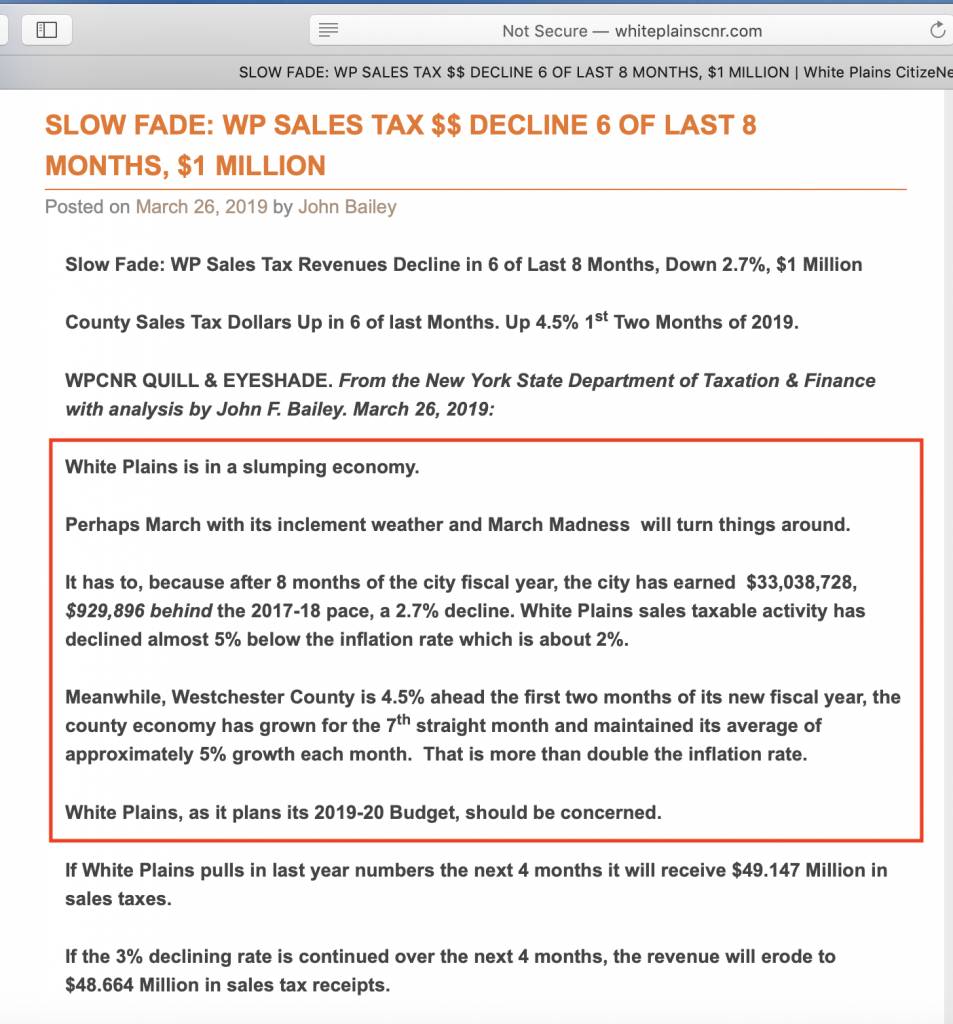
Now, as White Plains considers a new budget, the strain from these years of a local economy that has failed to keep up with neighboring municipalities is evident. Our sales tax revenue is down $2.7million over six years, and we are now relying on an increase in revenue from red light violations of $0.8million as well as increased revenue from parking violations of $0.5million to pay our bills.
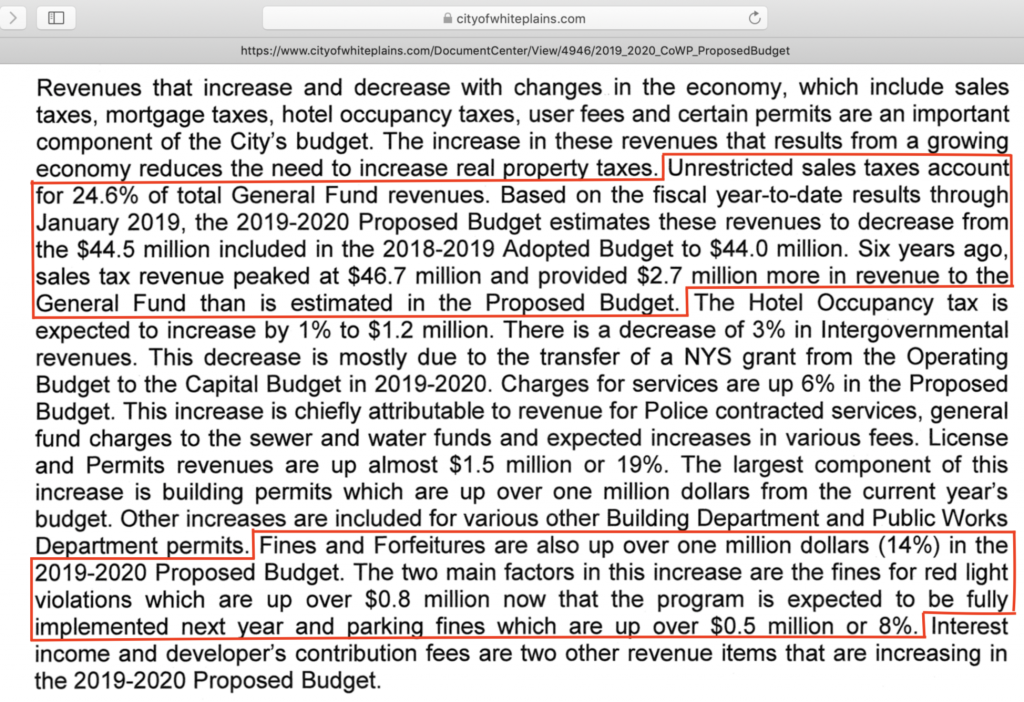
Yet, even with all of this negative data, the biggest problem, in my opinion, lies not in the trendlines. Those trends can be reversed. Nor does the biggest problem lie in the impact this economic stagnancy has yet had on City services, which remain excellent. Rather, I submit, the biggest problem is our structural resistance to acknowledging our economic troubles, let alone addressing them.
City Hall regularly communicates a message that White Plains is “booming,” and multiple defenders of the status quo then amplify that message, reflexively making excuses for our problems. When a local business closes, we regularly hear the excuse that online shopping is to blame (even when a restaurant closes), or sometimes we hear blame placed on the business owners themselves. Recently, White Plains has seen its Walmart, Jimmy John’s, and Panera Bread close, though each of those businesses is successful in many places. Yet, we’ve hardly changed any of our local policies, or even begun a vibrant civic discussion about why businesses that succeed elsewhere regularly struggle in WP. We sometimes see a discussion among citizens on social media, but what we need is a vibrant discussion in the political arena, reported on by local press, so we create a real possibility of fostering civic engagement and influencing local policies.
The first step to solving a problem is acknowledging the problem. If we acknowledged our local economic problems, there are a variety of discussions we could be having about how to do that. Of course, shifts in the broader economy away from brick-and-mortar retail and towards online shopping has contributed to the problem. But, if we, as a community, acknowledged that we see problems in WP which do not exist in our neighboring communities, we could talk about investing in public spaces and community events to attract people into our downtown. We could talk about changing our parking policies, to make our downtown more inviting. We could talk about changing our development strategy, to add a diverse group of residents instead of just residents who are looking for luxury rental apartments. And, we could talk about holding developers accountable when their approved projects languish as holes in the ground or vacant buildings for years after approval is granted.
Unfortunately, this great city is being held back from reaching its potential because of a failure by our leaders to take that first step of acknowledging that we have a problem. Thankfully, none of our problems are irreversible, and solutions remain available to us if we can begin the needed discussion about the ways we are falling short of our potential. I hope it happens.

You are correct Michael and thank you for taking the time to do the research to evidence the problem. You are likewise right that there are solutions, but to discuss solutions there must be an acknowledgement of the problem. The first thing the residents of WP need to do is recognize that the leaders in power are not likely to acknowledge the problem because to do so would mean the following:
1) Admission of responsibility for a failing local economy.
2) Susceptibility to political attack and therefore a loosening of their grip on local power.
3) A need to engage in productive dialogue about the issues and how to solve them.
None of the above are possible until the voters of WP insist on them by driving change from the voting booth.
To be clear, there has never been a better time in the last 80 years for WP to effect positive change. The last time first-ring suburban cities were this popular was before WWII. An amazing opportunity is being squandered by the political grip on power that the WPDCC has over this great City.